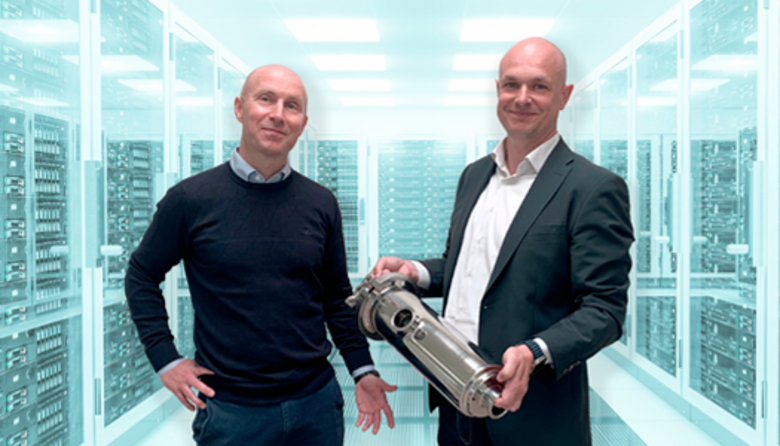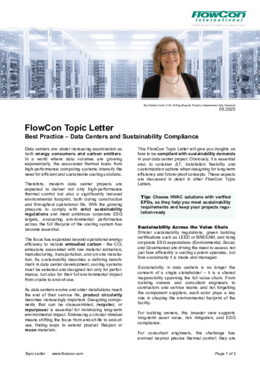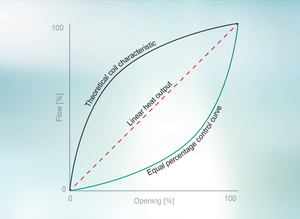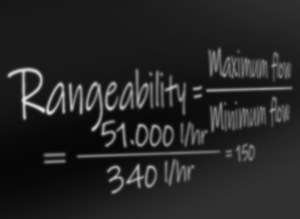Data Centers and Sustainability Compliance
By Christina Cohr, CCO, M.Eng (Export), FlowCon International ApS, Denmark
Data centers are under increasing examination as both energy consumers and carbon emitters. In a world where data volumes are growing exponentially, the associated thermal loads from high-performance computing systems intensify the need for efficient and sustainable cooling solutions.
Therefore, modern data center projects are expected to deliver not only high-performance thermal control but also a significantly reduced environmental footprint, both during construction and throughout operational life. With the growing pressure to comply with strict sustainability regulations and meet ambitious corporate ESG targets, evaluating environmental performance across the full lifecycle of the cooling system has become essential.
The focus has expanded beyond operational energy efficiency to include embodied carbon - the CO2 emissions associated with raw material extraction, manufacturing, transportation, and on-site installation. As sustainability becomes a defining benchmark in data center development, cooling systems must be selected and designed not only for performance, but also for their full environmental impact from cradle to end-of-use.
As data centers evolve and older installations reach the end of their service life, product circularity becomes increasingly important. Designing components that can be disassembled, recycled, or repurposed is essential for minimizing long-term environmental impact. Embracing a circular mindset means shifting the focus from end-of-life to end-of-use, finding ways to extend product lifespan or reuse materials.
This FlowCon Topic Letter will give you insights on how to be compliant with sustainability demands in your data center project. Obviously, it is essential also to consider ΔT, installation flexibility and customization options when designing for long-term efficiency and future-proof concepts. These aspects are discussed in detail in other FlowCon Topic Letters.
Tip:
Choose HVAC solutions with verified EPDs, as they help you meet sustainability requirements and keep your projects regulation-ready.
Sustainability Across the Value Chain
Stricter sustainability regulations, green building certifications such as LEED or BREEAM, and rising corporate ESG expectations (Environmental, Social, and Governance) are driving the need to assess not just how efficiently a cooling system operates, but how sustainably it is made and managed…
Read more
Sustainability in data centers is no longer the concern of a single stakeholder - it is a shared responsibility spanning the full value chain. From building owners and consultant engineers to contractors and service teams and not forgetting the component suppliers, each actor plays a key role in shaping the environmental footprint of the facility.
For building owners, this broader view supports long-term asset value, risk mitigation, and ESG compliance.
For consultant engineers, the challenge has evolved beyond precise thermal control; they are now expected to design systems that minimize environmental impact throughout the entire lifecycle, starting with construction and continuing through decades of operation, maintenance, and eventual system replacement.
And for contractors, it means selecting products that are not only high-performing but also backed by transparent, third-party environmental documentation such as Environmental Product Declarations (EPDs).
And finally, for service and maintenance personnel, sustainability now includes considerations around serviceability, repairability, and eventual disassembly and recycling at a product’s end-of-use.
Incorporating circular thinking - shifting from an end-of-life to an end-of-use approach - encourages stakeholders to extend product lifespans, reduce waste, and prioritize serviceability and repairability including reuse wherever possible. This is not only good for the environment; it helps ensure regulatory readiness, reputational integrity, and long-term cost efficiency. In short, a holistic, lifecycle-driven sustainability strategy is becoming the standard for responsible, future-proof data center design.
Environmental Product Declarations, EPDs
As sustainability regulations grow more complex, transparency is no longer optional - it is essential for responsible decision-making across the data center value chain. From design to decommissioning, every product and component must now contribute not only to performance goals but also to a demonstrably lower environmental impact.
In this context, Environmental Product Declarations, EPDs have become essential. These third-party verified documents provide transparent data on a product's embodied carbon, recyclability, and overall environmental performance - empowering stakeholders to make informed, sustainability-driven choices at every phase of the project.
For building owners, EPDs support greener investment strategies and help demonstrate compliance with ESG commitments.
For contractors - mechanical, electrical, or commissioning - EPDs reduce uncertainty in sustainability documentation and streamline project approvals.
And for the entire project team, EPDs contribute directly to certifications such as LEED and BREEAM, making sustainability an integrated part of the design and delivery process.
FlowCon is the first PICV manufacturer offering fully validated Environmental Product Declarations, giving your project the transparency it needs to meet today’s (and tomorrow’s) sustainability standards with confidence.
Driving Sustainable Results - Together
Every data center project is unique, both in scale and in its environmental demands. That is why FlowCon takes a different approach. We do not just supply valves; we deliver solutions that support the broader sustainability objectives of your project - from design to operation and beyond.
Our R&D team has extensive expertise in developing high-performance valve solutions that help optimize thermal efficiency while also reducing environmental impact. We offer a full valve size range tailored for data center applications, and we understand the growing importance of lifecycle sustainability, which covers not only energy efficiency in operation but also embodied carbon, material transparency, and circularity at end-of-use.
We also know that even the most sustainable design can fall short if products do not arrive when and where they are needed. That is why our logistics team is committed to reliable, on-time delivery, helping you stay on schedule without compromising on environmental goals.
At FlowCon, our goal is not just to supply components, but to be your sustainability-focused partner. We work alongside you to co-develop solutions that meet project-specific performance needs while aligning with ESG targets, regulatory compliance, and green building certification pathways.
Download Article

Are You ready to Succeed?
Whether you are facing strict installation limits, aiming for maximum energy performance, or designing for evolving cooling loads, our team is ready to help you succeed. We bring decades of experience, deep technical expertise, and a commitment to co-creating value with every client. Let us turn your ideas into reality. Contact Nickolei Kroman, OEM Business Development Manager, and tap into FlowCon’s industry-leading knowledge and innovation. Together, we will unlock new potential for your data center - today, tomorrow, and into the future:
Latest FlowCon Articles
See all
Sustainability and PICVs
Sustainability in HVAC is no longer optional - it is fundamental to responsible system design
Importance of Control Curves in PICVs
Equal percentage control vs. linear control – which is better when and why?
Rangeability and Turn Down Ratio - Update
Definition and use of Rangebility, Resolution and Turn Down Ratio in FlowCon PICVs



